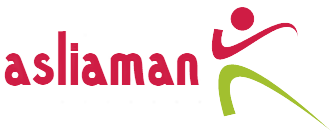
|
Getting your Trinity Audio player ready...
|
The decision to have an abortion is a deeply personal one, and the financial aspect can add significant stress. Fortunately, there are resources available to help women seeking abortions access the care they need, regardless of their financial situation. Let’s explore some of the options for financial assistance.

1. Abortion Funds
2. Government Assistance Programs
In certain states, Medicaid, a government-funded health insurance program designed to assist low-income individuals, may cover the costs associated with abortion procedures. This coverage can significantly alleviate the financial burden for those who qualify. However, it’s crucial to note that eligibility requirements for Medicaid coverage of abortion costs vary from state to state.
Individuals interested in exploring Medicaid coverage for abortion should first check with their local Medicaid office or healthcare provider to determine if they meet the eligibility criteria in their state. Eligibility factors may include income level, household size, residency status, and other specific requirements outlined by each state’s Medicaid program.
Some states have restrictions or limitations on Medicaid coverage for abortion, such as only covering the procedure in cases of rape, incest, or when the woman’s life is in danger. Additionally, certain states have enacted laws prohibiting the use of state Medicaid funds for abortion services altogether.
3. Clinics and Planned Parenthood
Many clinics and Planned Parenthood health centres understand the financial barriers that individuals may face when seeking abortion services and strive to make care accessible to all. One common approach is through sliding scale fees, where the cost of services is adjusted based on a patient’s income level. This means that individuals with lower incomes may pay less for the same services. Ensuring that financial constraints do not prevent them from accessing the care they need.
In addition to sliding scale fees, clinics and Planned Parenthood health centres may offer financial assistance programs to further support individuals in need. These programs may provide direct financial aid to cover the costs of abortion procedures, clinic visits, medications, and other related expenses. Eligibility for financial assistance programs varies and is often based on factors such as income, household size, and specific circumstances.
4. Fundraising Platforms
Some women face financial barriers to accessing abortion care. Utilizing online fundraising platforms like GoFundMe can provide a viable solution. These platforms offer individuals the opportunity to create personalized fundraising campaigns and appeal to their friends, family, and community for financial support. By sharing their story and explaining their need for assistance, individuals can leverage the power of social networks to raise funds to cover abortion costs.
Online fundraising platforms like GoFundMe allow individuals to reach a wide audience quickly and efficiently. Increasing the likelihood of receiving donations from a diverse range of supporters. Friends, family members, coworkers, and even strangers who are passionate about reproductive rights and healthcare access may contribute to the campaign, helping to alleviate the financial burden for the individual seeking abortion care.
5. Payment Plans and Loans
Certain clinics may offer payment plans to allow women to pay for their abortions over time. Additionally, some loan programs specifically cater to women needing financial assistance for reproductive healthcare, including abortion.
Finding the Right Resources
Confidentiality
Many resources offer confidential services, ensuring your privacy is respected throughout the process.
Start Local
Begin by contacting clinics or Planned Parenthood in your area. They can often provide information on local financial assistance programs.
National Hotlines
National hotlines like the National Network of Abortion Funds can connect you with resources in your area.
Online Resources
Websites like AbortionFinder.org and Planned Parenthood (https://www.plannedparenthood.org/) can provide information on clinics, financial assistance options, and how to get help.
Final Thoughts
Remember: You are not alone. There are organizations and individuals dedicated to supporting women seeking abortions. Don’t hesitate to reach out and explore your options. Financial assistance is available to help you access the care you need.
You will find the following information useful:
